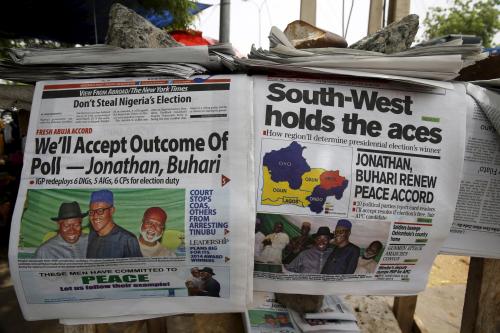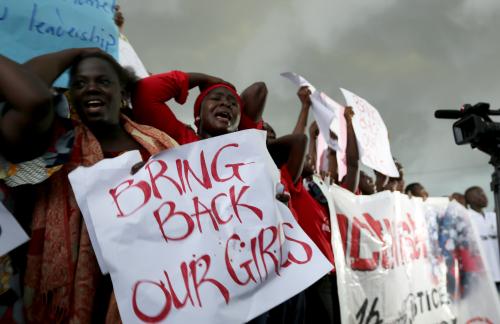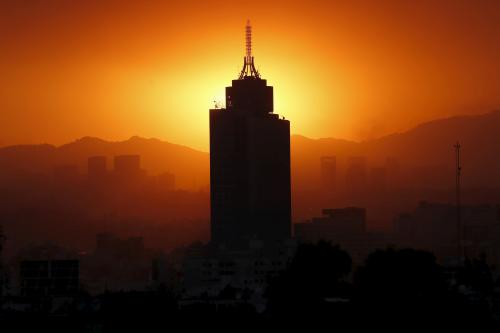African Leaders Pledge to Combat Climate Change at U.N. Summit
World leaders gathered at the U.N. General Assembly on Tuesday for an all-day Climate Change Summit. This meeting in New York aimed to mobilize commitments before the U.N. Climate negotiations in Paris next year, where leaders are hoping to conclude concrete agreements to lower greenhouse gas emissions. At the summit, 19 African leaders and 32 investors pledged to mitigate the effects of climate change through the Africa Clean Energy Corridor initiative, which plans to connect nearly half of the continent (from Egypt to South Africa) to grids powered by clean, renewable energy. A new financial mechanism called African Risk Capacity Extreme Climate Facility was also proposed as a joint public and private sector initiative. The fund will enable African Union member countries’ to invest in adapting to extreme climate shocks by issuing an estimated $1 billion in bonds over the next 30 years. While these proposals were in large part put forward and supported by the private sector actors, civil society organizations have called on political leaders to push these projects forward, arguing that private sector engagement alone will not be enough to follow through on their implementation.
Nigerian Army Makes Headway against Boko Haram Insurgency
In Nigeria this week, Boko Haram continued its advances on Maiduguri and surrounding towns in the Northeastern region of the country. However, the Nigerian army made considerable gains in its counteroffensive against Boko Haram, taking into custody over 260 militants who surrendered on Tuesday and arresting 50 fighters in Biu, Borno state on Wednesday. Cameroonian forces also claimed to have killed Abubakar Shekau, the leader of Boko Haram, on Sunday, although questions remain as to whether the man killed was in fact Shekau.
One of the 200 girls kidnapped from the town of Chibok by Boko Haram in April was rescued by the army after she had been abandoned by her captors in the woods. On Tuesday, rumors were circulating on social media, alleging that a number of the Chibok girls were rescued, however, the government refuted these claims.
In other news, Nigerian President Goodluck Jonathan announced that Nigeria is now Ebola-free, although statements from doctors at the Emergency Operation Centre for Ebola in Lagos indicate that Jonathan’s pronouncement may have been premature. Epidemiologically speaking, the announcement should have waited for two incubation periods (42 days) from the last reported case (September 8th), according to the medical experts. Meanwhile, on Thursday, Presidents Alpha Condé of Guinea, Ellen Johnson-Sirleaf of Liberia and Ernest Bai Koroma of Sierra Leone reported on the status of the Ebola outbreak at a special U.N. meeting dedicated to the crisis. U.S. President Barack Obama called for swift, international action to combat the disease, which he called “a growing threat to regional and global security.”
South Africa and Russia Sign a Nuclear Cooperation Deal
In an attempt to meet its growing energy needs, South Africa has signed a partnership agreement with Russia to develop its nuclear power capabilities and generate an additional 9,600 MW of power for the country. The deal provides a framework for the construction of up to eight nuclear reactors in South Africa using technology from the Russian nuclear firm, Rosatom. Eskom, South Africa’s national utility company, has been struggling to provide a reliable supply of electricity to the country for years, resulting in rolling blackouts which, in turn, has undercut economic productivity according to Bloomberg. The proposed deal with Russia has caused some public confusion due to its secretive nature, which some critics argue has “bypass[ed] the equitable, competitive and transparent public procurement process that the law demands.”




Commentary
Africa in the News: African Leaders Propose Climate Commitments; Nigerian Army Arrests Boko Haram Insurgents; South Africa Strikes a Nuclear Deal with Russia
September 26, 2014